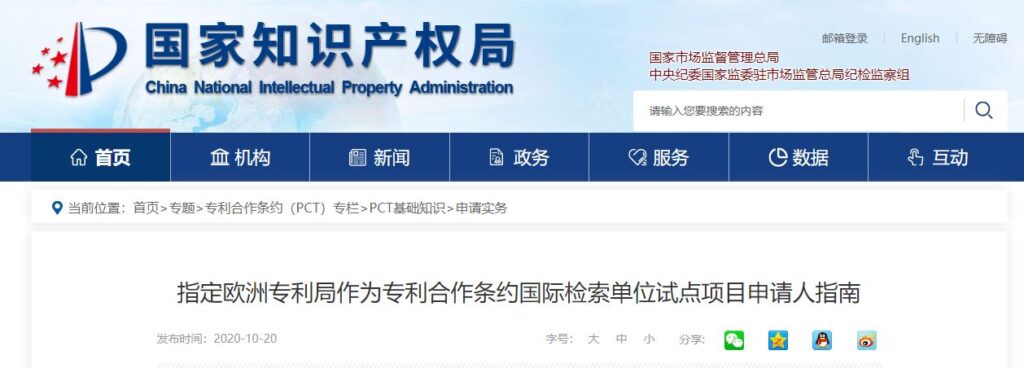Chinese Applicants Will Soon be Able to Select the European Patent Office as Search Authority in PCT Applications
The European Patent Office (EPO) and the China National Intellectual Property Administration (CNIPA) jointly announced on October 20, 2020 that Chinese applicants will be able to select the EPO as International Search Authority (ISA) in Patent Cooperation Treaty (PCT) applications in a 2-year pilot program. Currently, Chinese applicants can only select CNIPA as ISA for there PCT applications. The pilot, which starts on December, 1, 2020, will be limited to a total of 2,500 applications in the first 12 months and 3,000 applications in the second 12 months.
To participate, applicants must be nationals or residents of China and file the PCT application in English. Applicants can file the PCT application with CNIPA or the International Bureau (IB) as Receiving Office, but not the EPO.
It is not clear what the uptake of this program will be among Chinese applicants. In addition to the language requirement, the EPO international search fee is currently 1,775 Euros (~$2,100 USD) versus only 2,100 RMB (~$315) for the CNIPA international search fee. Further, these fees must be paid directly to the EPO in Euros, which can be hard for Chinese applicants due to restrictions on currency transfers overseas. Also, as Chinese applicants often rely on Chinese government support for PCT applications, which is capped, Chinese applicants may not be able to afford to select the EPO as ISA. For example, Shanghai provides an extra 10,000 RMB (~$1,500 USD) subsidy for each granted PCT national phase entry patent application (versus filing via Paris Convention).
The pilot program may be of the most interest to foreign-invested enterprises, particularly European companies, that plan to file in the EPO anyway. They might be more likely to draft their applications in English and may be subject to less onerous restrictions on currency transfers.
Back to All Resources

